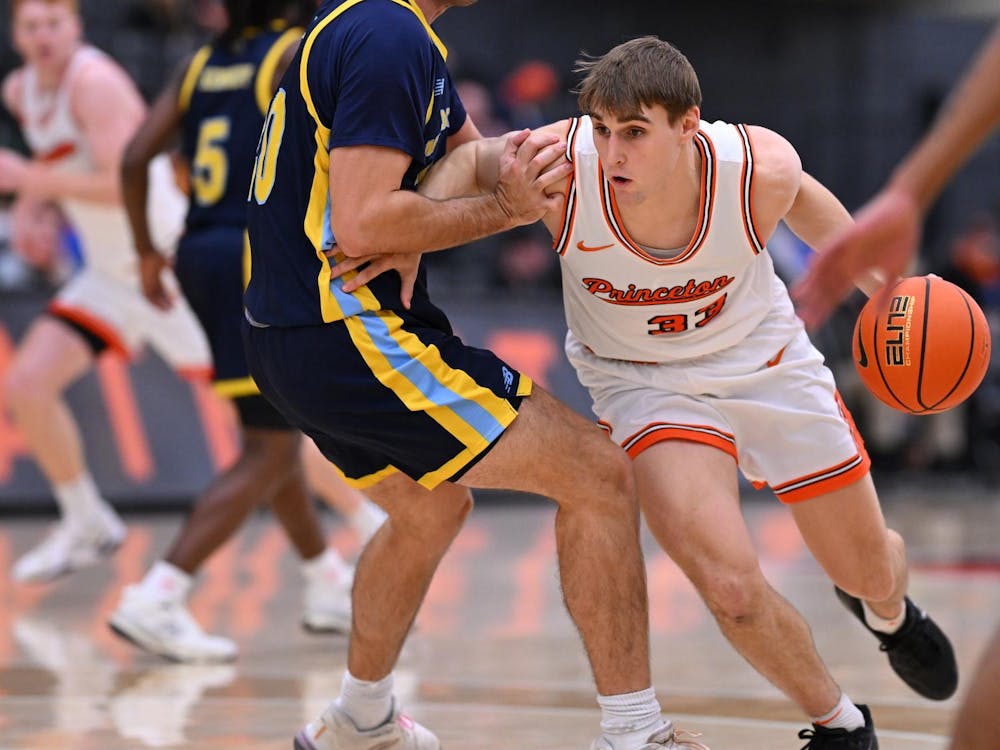The baseball team looks to rebound after rough outings in the 2012-13 season and the 2013-14 season. After posting records of 14-28 and 14-26, respectively, the Tigers are ready to begin a new campaign and start competing again for a spot in the Ivy League championship series.
On the surface, Princeton might seem to be faltering after losing some star talent from last season. Alec Keller, senior captain of the 2014 team and drafted by the Washington Nationals, is a player who’s hard to replace. His accolades included three All-Ivy First Team selections (2012-14) and the title of Ivy League Player of the Year in 2014. Moreover, he posted a .327 batting average on the season, top of the Princeton team and second-best in the league overall.
Despite this loss, senior captain Tyler Servais feels confident in the team’s chances, particularly in its depth. He noted that while “Keller was a really instrumental piece to the team … [Princeton] will have a more stacked lineup one through nine than [they] have had in the past”.
Along with Keller’s departure, the Tigers have to deal with the loss of Michael Fagan, last year’s most used pitcher. Fagan, who was drafted by the Oakland Athletics, led Princeton pitchers in innings with 58.0, earned run average with 2.33 and record at 4-2, as well as leading the lead in strikeouts with 77. Fagan was also an All-Ivy selection, earning his first (and only) All-Ivy First Team appearance of his career.
However, a look at the Tigers’ hitting lineup from last year reveals how much the team has been willing to trust the younger guys. While Keller may have held the team’s highest batting average, four of the five players with the most at bat opportunities were underclassmen. Sophomores Danny Hoy and Billy Arendt, freshmen Paul Tupper, sophomore Billy Arendt and freshman Zack Belski were first, fourth, third and fifth in at bats, respectively.
Servais notes that, not only would Princeton’s hitting benefit from the development of younger players, but that the team could also see improvement based on a shift in focus on the part of the coaching staff. In addition to bringing in new assistant coaches Mike Russo and Greg Van Horn, Bradley has stressed “how we’re no longer going to be the team that just hits home runs to win the game, we need to play a bit more soundly as well to have more success in the league this year.”
In general, coach Scott Bradley has handed much of the load to the younger guys. This strategy looks to yield dividends not just in hitting but on the mound as well. Though the aforementioned Fagan did pitch the most innings for the Tigers, the average age of the pitching lineup appears to mirror that of the batting — four of the five most used pitchers last season were underclassmen.
Granted, unlike with the hitters, the dropoff in performance from Fagan to the underclassmen pitchers is pretty drastic. While Fagan was tearing it up with a 2.33 ERA, the next-smallest ERA among the top five pitchers. Sophomore pitcher Christopher Giglio expressed the difficulty of replacing such a performer, explaining that “it’s tough to beat a guy who’s up there for Ivy League pitcher of the year … we won’t be able to replace [Fagan] with one guy, but we’ll be able to replace him with a staff.”

This in itself, however, is no reason to doubt the readiness of last year’s pitchers and their ability to step it up this season. In particular, current sophomores Keelan Smithers and Chad Powers really showed their mettle last year. Each got a lot of starting opportunities last year, Smithers at nine and Powers at seven; moreover, both went on to put up respectable records of 2-4 and 3-4.
However, when talking about the Tigers’ pitching, the big question mark for the season is going to be the health and performance of junior Cameron Mingo. Mingo had an excellent start to his Princeton career in 2013, posting a 2.93 ERA and recording 33 strikeouts in 49.1 innings pitches. Going into last season, he seemed a lock for the starting pitcher spot.
Unfortunately, during his sophomore campaign, he would be hampered by injury. Issues with his elbow kept Mingo to just six games and 25 innings pitched. Despite the aforementioned strong play of the younger players, having Mingo in full form on the mound will be crucial if the Tigers are to make a deep run in the spring and hopefully get a shot at the Ivy League Championships.
Servais reiterated that he definitely sees this team competing for an Ivy League title, pointing out that “all it takes is for one team to get hot for four-five weeks in a row to run the league. We really feel confident … in our ability to play small ball and play better as a team.”

In short, while they may have lost some heavyweights last year, the Tigers are looking ready to go as they open up on the road against Louisiana State University at the end of the month.







